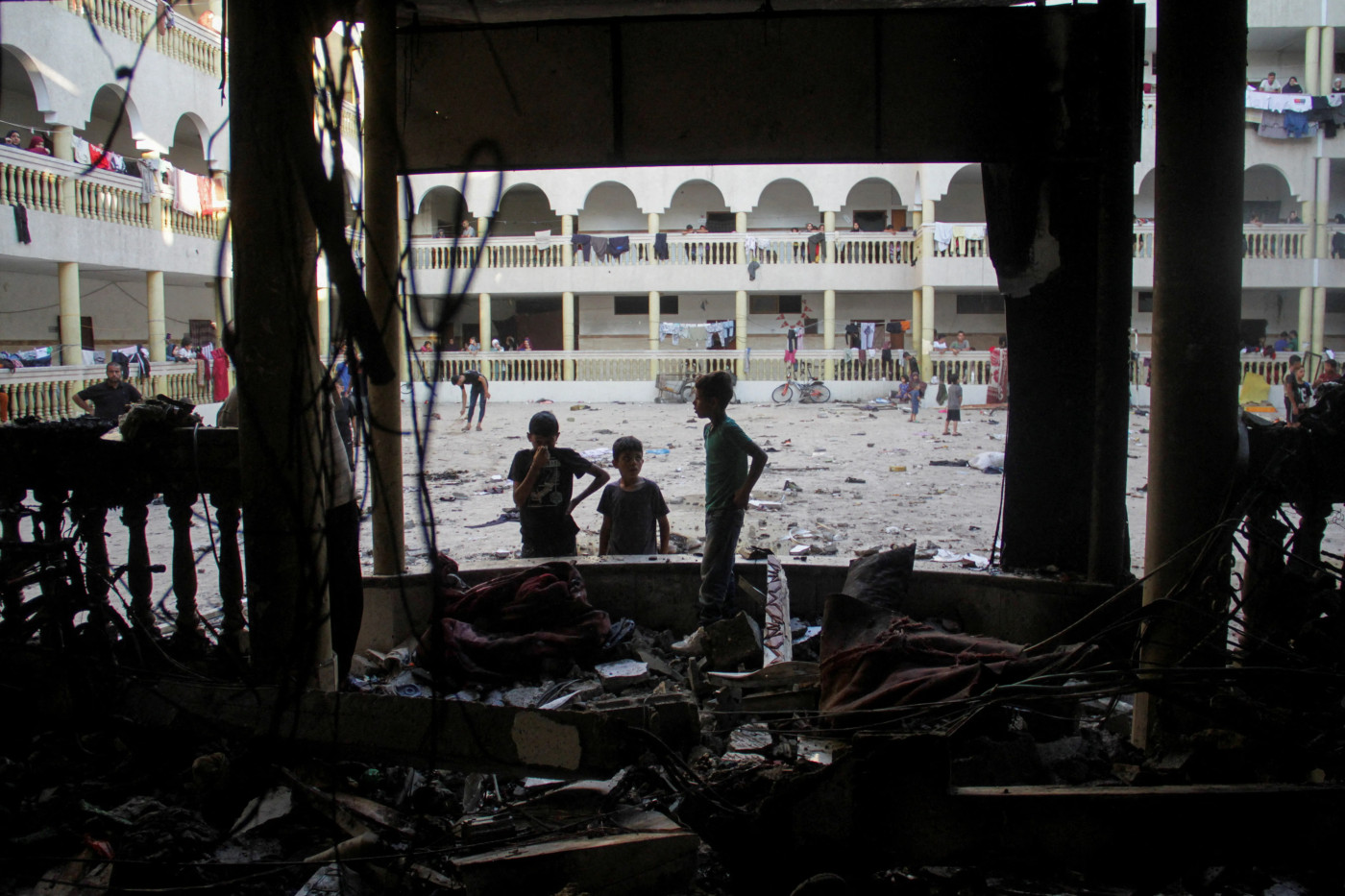China Breaks Silence on Ukraine's Kursk Offensive
China has responded to the Ukrainian forces' surprise incursion into the Russian border region of Kursk, an offensive that caught the Kremlin off guard and sent it scrambling to contain the offensive.
A Chinese foreign ministry spokesperson on Monday called on "all parties" to abide by the "three principles" for de-escalating the situation: "no expansion of the battlefield, no escalation of fighting, and no fueling the flame." The spokesperson said that Beijing would "maintain communication with the international community to play a constructive role for the political settlement of the crisis."
The three principles were first outlined by Chinese Foreign Minister Wang Yi soon after Russia's February 2022 invasion of Ukraine.
Since launching the cross-border offensive six days ago, Ukrainian troops have reportedly pushed as far as 18 miles into Russia, according to the Russian Ministry of Defense. They now control 28 settlements, Kursk Governor Alexei Smirnov has been cited as saying.
The Russian and Ukrainian foreign ministries did not immediately respond to written requests for comment.
China has sought to frame itself as a neutral party in the Russo-Ukrainian war.
However, Beijing has refused to label Moscow's invasion as such and censors criticism of the conflict on Chinese social media.
Bilateral trade and China-bound natural gas and oil have also helped keep Russia's isolated economy afloat, though U.S. secondary sanctions have prompted Chinese banks to increasingly reject Russian payments.
During his visit to Beijing in July, Ukraine's top envoy Dmytro Kuleba told Chinese counterpart Wang Yi that Russia is not ready to engage in "good faith" negotiations to end the fighting.
Jonathan Ward, a senior fellow at the Washington, D.C.-based Hudson Institute think tank, previously told Newsweek: "We have already seen China attempt to weigh in on peace terms for Ukraine, essentially endorsing Putin's goals and making its own demands that the West scale back economic sanctions—something which worries Beijing given its own military ambitions in Asia."
Since Ukraine overran Russian defensive positions along the border, the Kremlin has had to rely on a patchwork defense of conscripts in Kursk and units transferred from quieter parts of the front line in Ukraine. This is "likely exacerbating the disorganization" of Russian forces as they fight to contain the push, the Washington, D.C.-based think tank the Insititute for the Study of War, said Saturday.
Approximately 121,000 people have been evacuated from the region with tens of thousands more set to leave, according to Kursk Governor Smirnov. Some 11,000 have been evacuated from neighboring Belgorod region due to "enemy action," according to Russian media.
To have a better chance at expelling invading Russian forces, Ukraine must ramp up "pressure on the aggressor," President Volodymyr Zelensky said during his nightly address to Ukrainians on Saturday, in his first public acknowledgment of the offensive.
Russian President Vladimir Putin has made statements apparently aimed at downplaying the impact of the Ukrainian push, calling it "another large-scale provocation" during an emergency meeting of his Security Council on Wednesday.
Jan Kallberg, a former West Point professor and a senior fellow at the Center for European Policy Analysis think tank, told Newsweek the impact of the Kursk offensive is "far broader in the Russian mind than on the ground."
"Putin bases his claim to be a legitimate leader on the fact that Russia needs his steady hand to create order and stability in a country that tacitly fears disorder and destabilization."
The fact Ukrainians, "who have been portrayed as inferior for decades," are fighting on Russian territory is "a direct challenge to Putin's authority," Kallberg said. Kremlin hardliners believe Putin has "lost his autocratic 'magic power,'" which puts the Russian leader at greater risk of a coup, he added.
Disclaimer: The copyright of this article belongs to the original author. Reposting this article is solely for the purpose of information dissemination and does not constitute any investment advice. If there is any infringement, please contact us immediately. We will make corrections or deletions as necessary. Thank you.
